Posts (page 87)
-
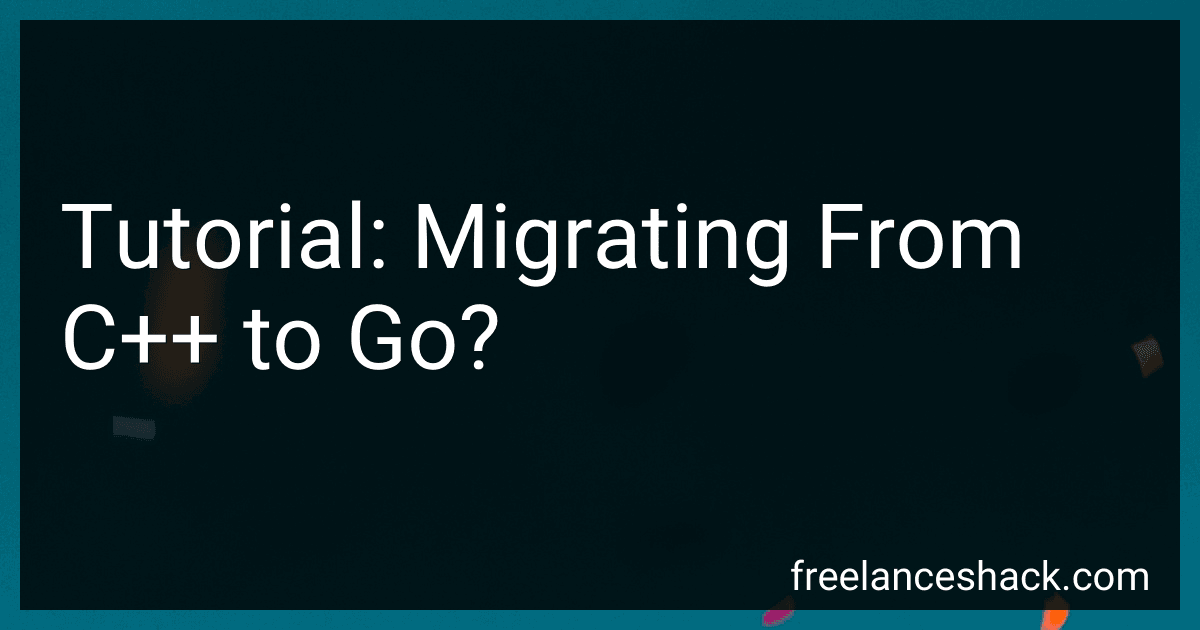 12 min readTutorial: migrating from C++ to GoMigrating from C++ to Go can be a challenging but rewarding process. This tutorial aims to provide you with an overview of the key differences between the two languages and guide you through the process of migrating your existing C++ codebase to Go.Introduction to Go: Go is a modern, statically-typed programming language developed by Google. It is designed for simplicity, efficiency, and scalability.
12 min readTutorial: migrating from C++ to GoMigrating from C++ to Go can be a challenging but rewarding process. This tutorial aims to provide you with an overview of the key differences between the two languages and guide you through the process of migrating your existing C++ codebase to Go.Introduction to Go: Go is a modern, statically-typed programming language developed by Google. It is designed for simplicity, efficiency, and scalability.
-
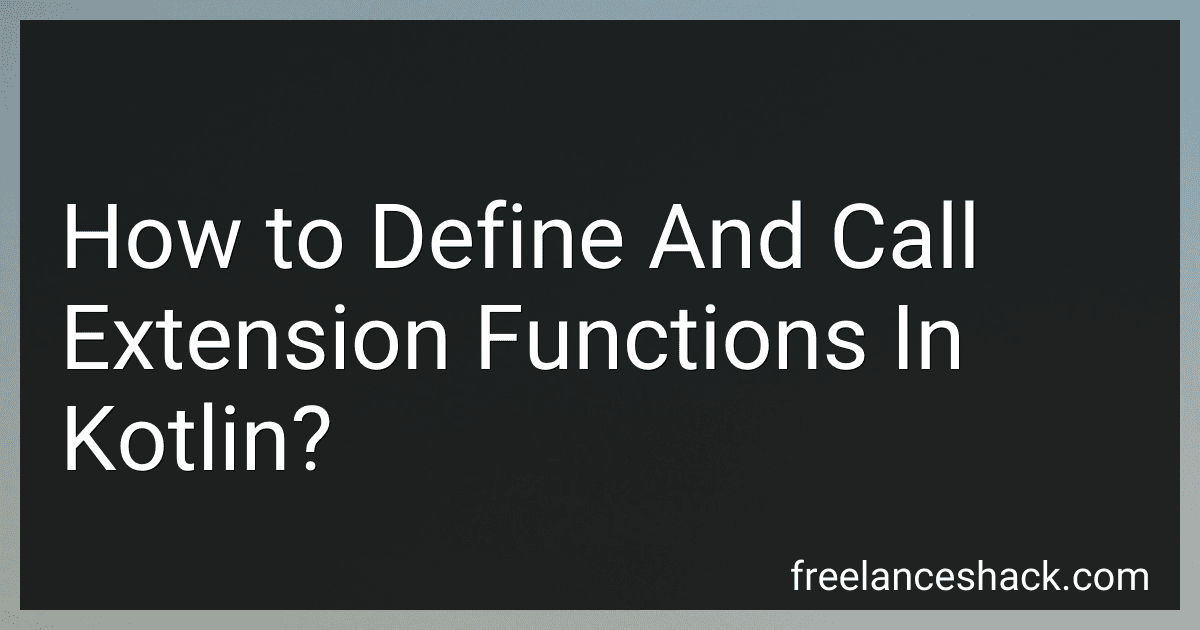 6 min readExtension functions in Kotlin allow us to add new functions to existing classes without modifying their source code. This feature helps to keep the codebase clean and enables us to work with third-party libraries or system classes more efficiently.To define an extension function in Kotlin, follow these steps:Start with the fun keyword, followed by the name you want to give to the function.Specify an instance of the class you want to extend as the receiver type.
6 min readExtension functions in Kotlin allow us to add new functions to existing classes without modifying their source code. This feature helps to keep the codebase clean and enables us to work with third-party libraries or system classes more efficiently.To define an extension function in Kotlin, follow these steps:Start with the fun keyword, followed by the name you want to give to the function.Specify an instance of the class you want to extend as the receiver type.
-
 7 min readComparing California and Florida is subjective and will depend on individual preferences and priorities. Both states have distinct characteristics and offer unique advantages.California is renowned for its stunning coastline, mild climate, and diverse landscape. It offers gorgeous beaches, picturesque mountains, and expansive forests.
7 min readComparing California and Florida is subjective and will depend on individual preferences and priorities. Both states have distinct characteristics and offer unique advantages.California is renowned for its stunning coastline, mild climate, and diverse landscape. It offers gorgeous beaches, picturesque mountains, and expansive forests.
-
 6 min readIn Kotlin, null safety is an essential feature that helps prevent null pointer exceptions. To perform null safety checks, you can use the safe call operator (?.), the not-null assertion operator (!!), or the safe cast operator (as?).Safe Call Operator (?.): The safe call operator lets you execute a statement or access a property only if the object reference is not null. If the object is null, the expression evaluates to null instead of throwing a null pointer exception.
6 min readIn Kotlin, null safety is an essential feature that helps prevent null pointer exceptions. To perform null safety checks, you can use the safe call operator (?.), the not-null assertion operator (!!), or the safe cast operator (as?).Safe Call Operator (?.): The safe call operator lets you execute a statement or access a property only if the object reference is not null. If the object is null, the expression evaluates to null instead of throwing a null pointer exception.
-
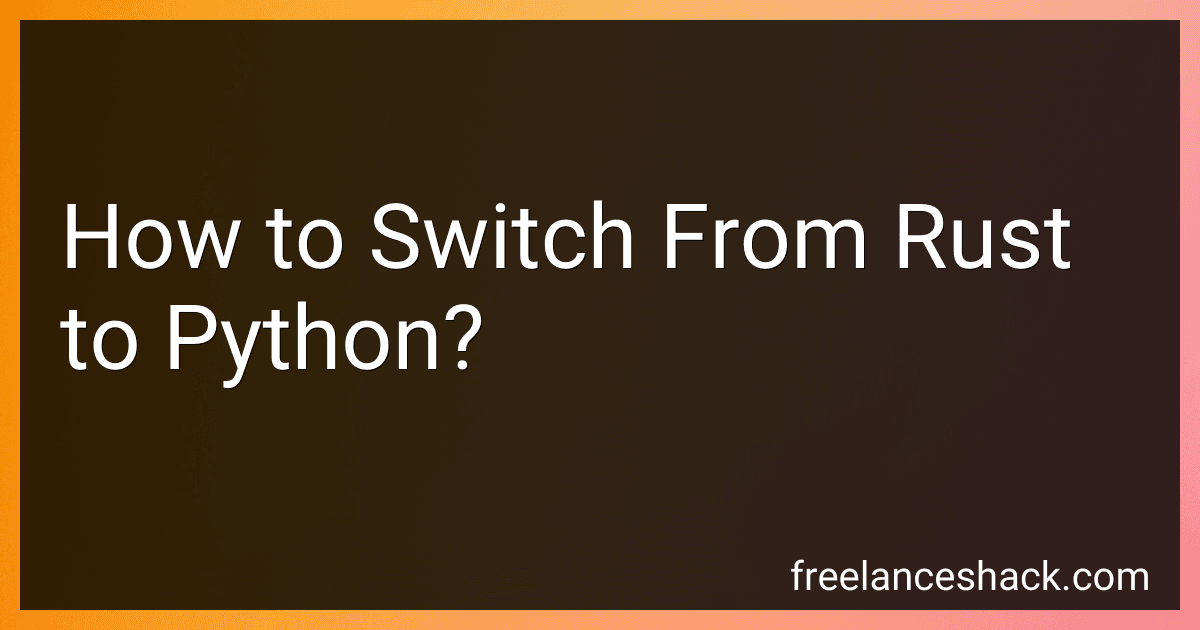 11 min readSwitching from Rust to Python involves a few important considerations and steps. Here's a breakdown of the process:Understanding the Differences: Rust and Python are different programming languages with contrasting features and paradigms. Before making the switch, it's essential to familiarize yourself with Python's syntax, programming style, and ecosystem. Python is a high-level, interpreted language known for its simplicity and readability.
11 min readSwitching from Rust to Python involves a few important considerations and steps. Here's a breakdown of the process:Understanding the Differences: Rust and Python are different programming languages with contrasting features and paradigms. Before making the switch, it's essential to familiarize yourself with Python's syntax, programming style, and ecosystem. Python is a high-level, interpreted language known for its simplicity and readability.
-
 9 min readWhen deciding on the best state to buy a car between South Carolina and New Jersey, several factors should be considered.In South Carolina, buying a car is often advantageous due to its lower sales tax rate. As of 2021, the state's sales tax is 6%, making it more affordable compared to New Jersey's sales tax rate of 6.625%. This difference may result in significant savings when purchasing a vehicle.Another benefit of purchasing a car in South Carolina is its lower registration fees.
9 min readWhen deciding on the best state to buy a car between South Carolina and New Jersey, several factors should be considered.In South Carolina, buying a car is often advantageous due to its lower sales tax rate. As of 2021, the state's sales tax is 6%, making it more affordable compared to New Jersey's sales tax rate of 6.625%. This difference may result in significant savings when purchasing a vehicle.Another benefit of purchasing a car in South Carolina is its lower registration fees.
-
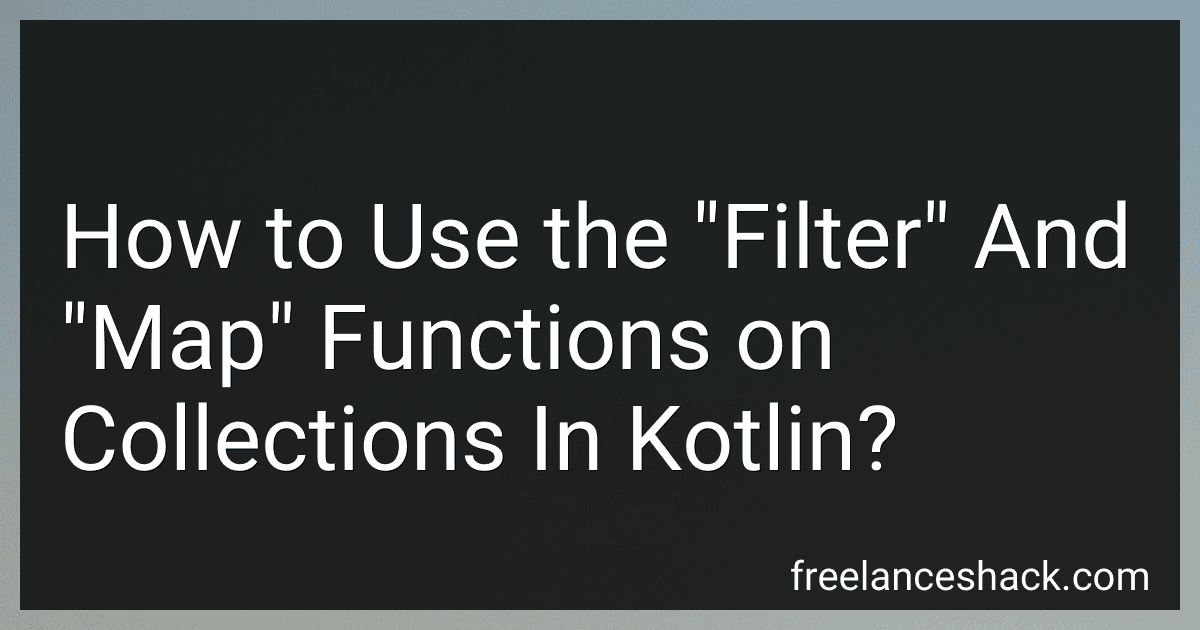 6 min readIn Kotlin, the "filter" and "map" functions are useful for manipulating collections such as lists, arrays, or sequences.The "filter" function allows you to selectively retain elements from a collection based on a given condition. It takes a predicate that determines whether an element should be included in the resulting collection. The filtered elements are returned as a new collection.For example: val numbers = listOf(1, 2, 3, 4, 5) val evenNumbers = numbers.
6 min readIn Kotlin, the "filter" and "map" functions are useful for manipulating collections such as lists, arrays, or sequences.The "filter" function allows you to selectively retain elements from a collection based on a given condition. It takes a predicate that determines whether an element should be included in the resulting collection. The filtered elements are returned as a new collection.For example: val numbers = listOf(1, 2, 3, 4, 5) val evenNumbers = numbers.
-
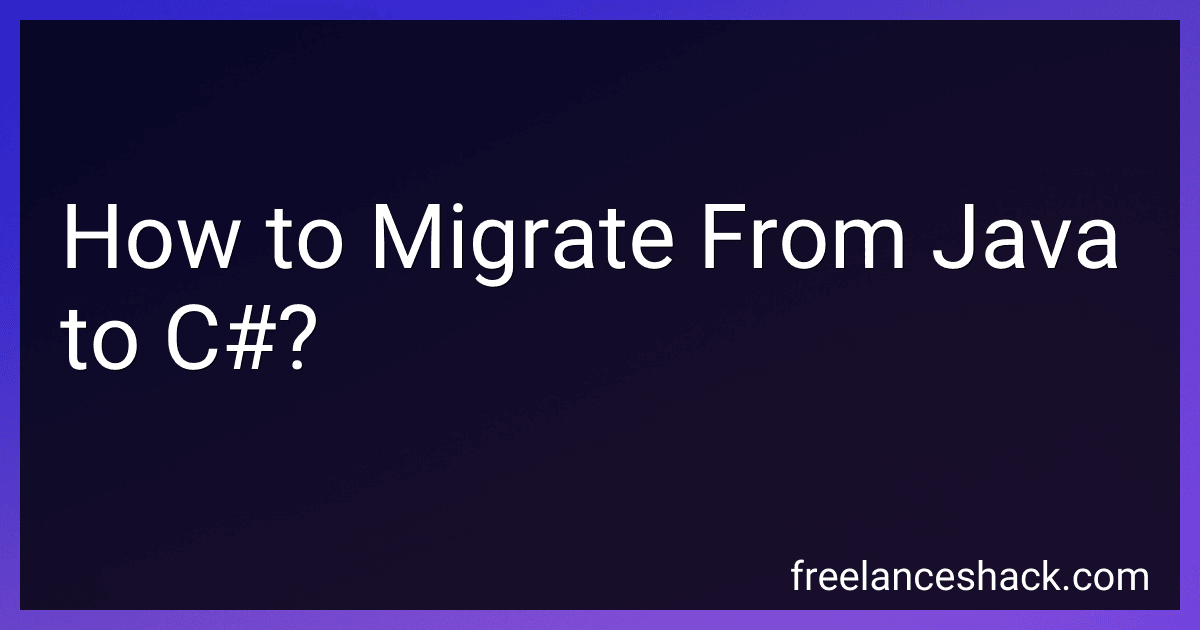 12 min readMigrating from Java to C# can appear to be a challenging task, but with careful planning and understanding of the similarities and differences between the two languages, it becomes manageable. Here are some key aspects to consider when migrating from Java to C#:Language Syntax: Although Java and C# have similarities in terms of syntax as both are based on C-style languages, there are still some differences to be aware of.
12 min readMigrating from Java to C# can appear to be a challenging task, but with careful planning and understanding of the similarities and differences between the two languages, it becomes manageable. Here are some key aspects to consider when migrating from Java to C#:Language Syntax: Although Java and C# have similarities in terms of syntax as both are based on C-style languages, there are still some differences to be aware of.
-
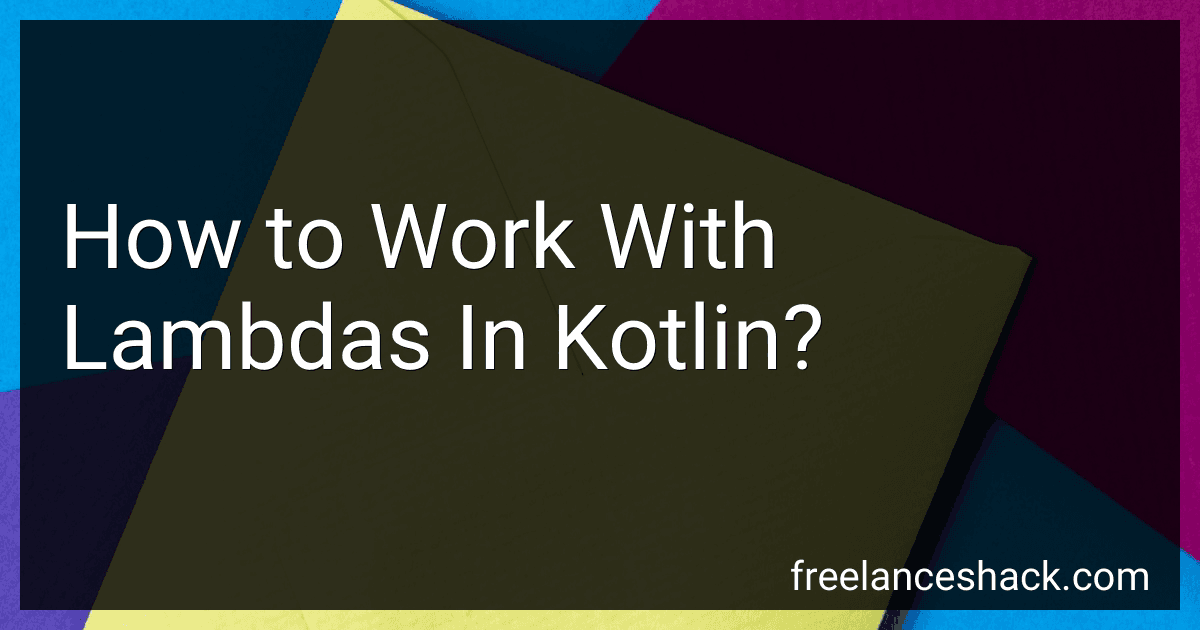 5 min readIn Kotlin, lambda expressions provide a concise syntax for defining anonymous functions. They are commonly used in functional programming paradigms to enable functional programming styles and behavior.To work with lambdas in Kotlin, you can define them using a combination of curly braces, function parameters, and an arrow (->) symbol.
5 min readIn Kotlin, lambda expressions provide a concise syntax for defining anonymous functions. They are commonly used in functional programming paradigms to enable functional programming styles and behavior.To work with lambdas in Kotlin, you can define them using a combination of curly braces, function parameters, and an arrow (->) symbol.
-
 10 min readVirginia and Ohio are both popular states to live in the United States, each with its own unique characteristics and advantages.Virginia, also known as the "Old Dominion" state, offers a diverse and vibrant environment. It is home to bustling cities like Richmond and the metropolitan area of Northern Virginia, which includes cities like Arlington and Alexandria.
10 min readVirginia and Ohio are both popular states to live in the United States, each with its own unique characteristics and advantages.Virginia, also known as the "Old Dominion" state, offers a diverse and vibrant environment. It is home to bustling cities like Richmond and the metropolitan area of Northern Virginia, which includes cities like Arlington and Alexandria.
-
 8 min readMigrating from Go to Go refers to the process of updating an existing version of the Go programming language to a newer version. The Go programming language continuously evolves with each new release, introducing new features, bug fixes, performance improvements, and other updates.To migrate from an older version of Go to a newer one, you would typically need to follow a few steps:Understand the changes: Start by consulting the Go release notes or documentation for the newer version.
8 min readMigrating from Go to Go refers to the process of updating an existing version of the Go programming language to a newer version. The Go programming language continuously evolves with each new release, introducing new features, bug fixes, performance improvements, and other updates.To migrate from an older version of Go to a newer one, you would typically need to follow a few steps:Understand the changes: Start by consulting the Go release notes or documentation for the newer version.
-
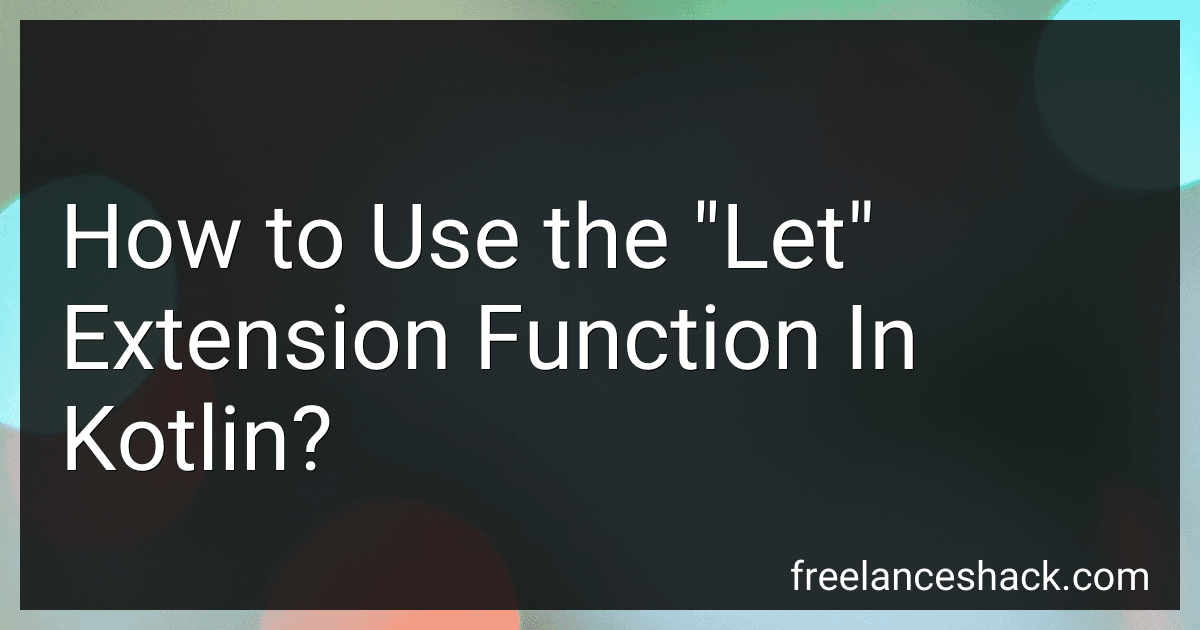 8 min readIn Kotlin, the "let" extension function is used to operate on nullable objects and safely perform operations on them within a code block. It works by passing the object reference as a parameter to the function block and executing the operations on the object. This function can be particularly useful when dealing with nullable variables, avoiding the need for null-checks in your code.To use the "let" extension function in Kotlin, you follow the general syntax: objectReference?.
8 min readIn Kotlin, the "let" extension function is used to operate on nullable objects and safely perform operations on them within a code block. It works by passing the object reference as a parameter to the function block and executing the operations on the object. This function can be particularly useful when dealing with nullable variables, avoiding the need for null-checks in your code.To use the "let" extension function in Kotlin, you follow the general syntax: objectReference?.